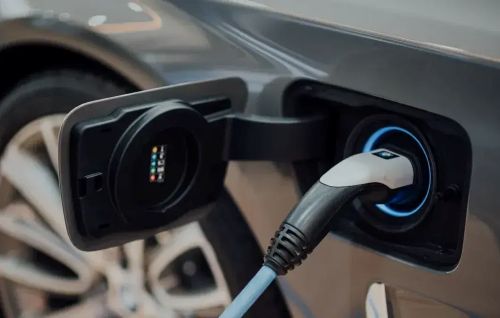


OCPP 2.0.1 Becomes IEC 63584: A New Benchmark in EV Charging Protocols
Introduction
A pivotal milestone has been reached in the electric vehicle (EV) industry with the formal standardization of the Open Charge Point Protocol (OCPP) as IEC 63584 by the International Electrotechnical Commission (IEC). This international standard transforms OCPP 2.0.1 from a widely used open protocol into a globally recognized framework that ensures seamless communication between China EV chargers and management systems from different manufacturers.
As EV adoption surges worldwide, interoperability, flexibility, and security in charging infrastructure are more critical than ever. IEC 63584 sets the foundation for a unified, future-proof ecosystem that can scale globally and support advanced smart charging capabilities.
What Is the IEC?
Founded in 1906 and based in Geneva, Switzerland, the IEC develops and publishes international standards for electrical and electronic technologies. Its mission is to promote safety, efficiency, and interoperability across sectors. By incorporating OCPP under its umbrella as IEC 63584, the IEC has endorsed a key communication protocol that will shape how EV chargers connect and interact with backend systems globally.
Understanding IEC 63584
IEC 63584 specifies the communication protocol between EV charging stations and Charging Station Management Systems (CSMS). Based on OCPP 2.0.1 maintained by the Open Charge Alliance (OCA), it defines a unified communication framework that uses JSON over WebSockets, enabling real-time, efficient, and reliable interaction.
The standard includes a detailed implementation guide, providing manufacturers and developers with technical recommendations to ensure full compliance and interoperability.
Why IEC 63584 Is a Game-Changer
Seamless Interoperability
Before this standardization, many manufacturers used proprietary protocols that limited charger compatibility and network scalability. IEC 63584 breaks down these barriers, enabling any compliant charger to work with any backend system worldwide. This ensures consistent user experiences, reduces range anxiety, and simplifies network integration.
Smart Charging and Grid Stability
The growing EV load on power grids requires intelligent energy management. IEC 63584 supports features such as load balancing, demand response, and vehicle-to-grid (V2G) integration. These enable efficient electricity distribution, prevent grid overload, and support two-way energy flows, creating more resilient and sustainable energy systems.
Scalable Infrastructure Growth
Rapid EV adoption demands scalable charging infrastructure. IEC 63584’s clear technical framework allows operators to add new charging stations, integrate software updates, and onboard third-party services without disrupting existing operations—making network expansion faster and more reliable.
The Rise and Evolution of OCPP
Originally developed by the Open Charge Alliance to address communication fragmentation, OCPP quickly became the industry’s most adopted open protocol. Early versions 1.5 and 1.6 laid the groundwork, while OCPP 2.0.1 introduced enhanced security, device management, smart charging, and V2G capabilities.
IEC’s adoption of OCPP 2.0.1 as IEC 63584 elevates it to an official international standard, opening doors for wider governmental and commercial acceptance.
Global Impact of IEC 63584
International Harmonization: Different regions have varied charging standards. IEC 63584 helps harmonize these differences, facilitating cross-border EV charging and reducing technical complexity for global operators.
Boosted Collaboration: With a unified protocol, manufacturers, software developers, and integrators can focus on innovation rather than compatibility, accelerating the deployment of user-friendly solutions.
Enhanced User Experience: Reliable, interoperable charging builds driver trust and encourages EV adoption by ensuring seamless, hassle-free charging everywhere.
Looking Ahead
IEC 63584 sets a robust foundation but will continue evolving to accommodate emerging technologies such as bidirectional charging, renewable integration, AI-based energy management, and 5G diagnostics. The Open Charge Alliance and IEC will collaborate on future updates, keeping the standard aligned with the smart mobility ecosystem’s needs.
Conclusion
The ratification of IEC 63584 marks a watershed moment, transforming EV charging communications into a unified, interoperable global standard. By enabling seamless integration, smart grid compatibility, and scalable infrastructure growth, it paves the way for a reliable and sustainable EV future. Whether manufacturers, network operators, or drivers, stakeholders worldwide now share a common path toward smarter, user-centric EV charging experiences.Know more about Google SEO Directory
